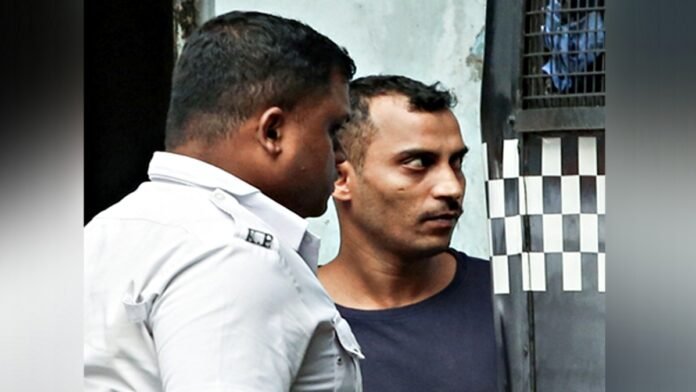
Key Points:
- Conviction and Sentence: Sanjay Roy sentenced to life imprisonment and fined ₹50,000 for the brutal rape and murder of a 31-year-old female trainee doctor at Kolkata’s RG Kar Medical College and Hospital.
- Nationwide Outrage: The heinous crime, committed on August 9, 2024, triggered widespread protests across the country.
- Legal Proceedings: The case involved swift action from authorities, intervention by the CBI, and critical observations from the High Court and Supreme Court.
- Timeline of Events: From the discovery of the crime scene to the final verdict on January 20, 2025, the case saw multiple arrests, protests, and judicial interventions.
- Impact on Healthcare: The incident highlighted security lapses in medical institutions and sparked debates on ensuring the safety of healthcare workers.
Kolkata: In a case that shook the nation, Sanjay Roy has been sentenced to life imprisonment by a Sealdah court for the rape and murder of a postgraduate trainee doctor at Kolkata’s RG Kar Medical College and Hospital. The verdict, delivered by Additional District and Sessions Judge Anirban Das, also includes a fine of ₹50,000.
The horrific crime, committed on August 9, 2024, had sparked nationwide protests and drew sharp criticism of institutional security in healthcare settings. The victim’s body, found half-naked in a seminar hall on the hospital’s third floor, revealed the extent of the brutality.
Timeline of the Case: From Crime to Conviction
- August 9, 2024: The 31-year-old doctor’s body was discovered, leading to immediate public outrage.
- August 10: Kolkata Police detained Sanjay Roy, and protests erupted across West Bengal, with doctors demanding swift justice.
- August 12: Chief Minister Mamata Banerjee issued an ultimatum to the police for a resolution within seven days. The hospital principal, Sandeep Ghosh, resigned in protest over the administration’s failure.
- August 13: The Calcutta High Court labeled the crime “horrific” and urged doctors to return to work. The National Human Rights Commission (NHRC) also took cognizance of the matter.
- August 14: The case was handed over to the CBI, and the former principal, Sandeep Ghosh, was placed on long leave.
- August 15: Tensions escalated as a mob attacked RG Kar Hospital, vandalizing the emergency department.
- August 16: Police arrested 19 individuals involved in the vandalism.
- August 20: The Supreme Court directed the West Bengal government and Kolkata Police to submit a status report on the investigation.
- August 24: A lie detector test was conducted on the main accused and six others.
- September 2: The CBI arrested Sandeep Ghosh on charges of financial irregularities related to the hospital.
- September 14: Further arrests were made, including a police officer accused of tampering with evidence and delaying the FIR.
- October 7: The CBI filed a chargesheet against Sanjay Roy for rape and murder.
- November 11: The trial began in Sealdah Court.
- January 20, 2025: The court delivered its verdict, sentencing Sanjay Roy to life imprisonment.
Legal and Social Implications
Sanjay Roy was convicted under Sections 64, 66, and 103(1) of the Indian Justice Code (BNS), with Section 64 prescribing a minimum sentence of 10 years, extendable to life imprisonment. The case exposed glaring lapses in institutional safety and the need for robust measures to protect healthcare workers, particularly women.
The verdict has been hailed as a step toward justice, but activists and legal experts stress the importance of systemic reforms to prevent such tragedies in the future.
Public Reaction and Aftermath
The incident led to widespread outrage, with protests by doctors and healthcare professionals across India demanding better security in medical institutions. The conviction has brought some solace, but the emotional scars remain for the victim’s family and the medical community.
The tragic event has also reignited discussions on women’s safety, judicial efficiency, and institutional accountability, underscoring the urgent need for systemic change.
A Call for Change
As justice is served in this gruesome case, the nation is reminded of the pressing need to ensure that such incidents are not repeated. Strengthened security measures, faster judicial processes, and stricter enforcement of laws must become the norm to protect vulnerable individuals and uphold public faith in the justice system.















































